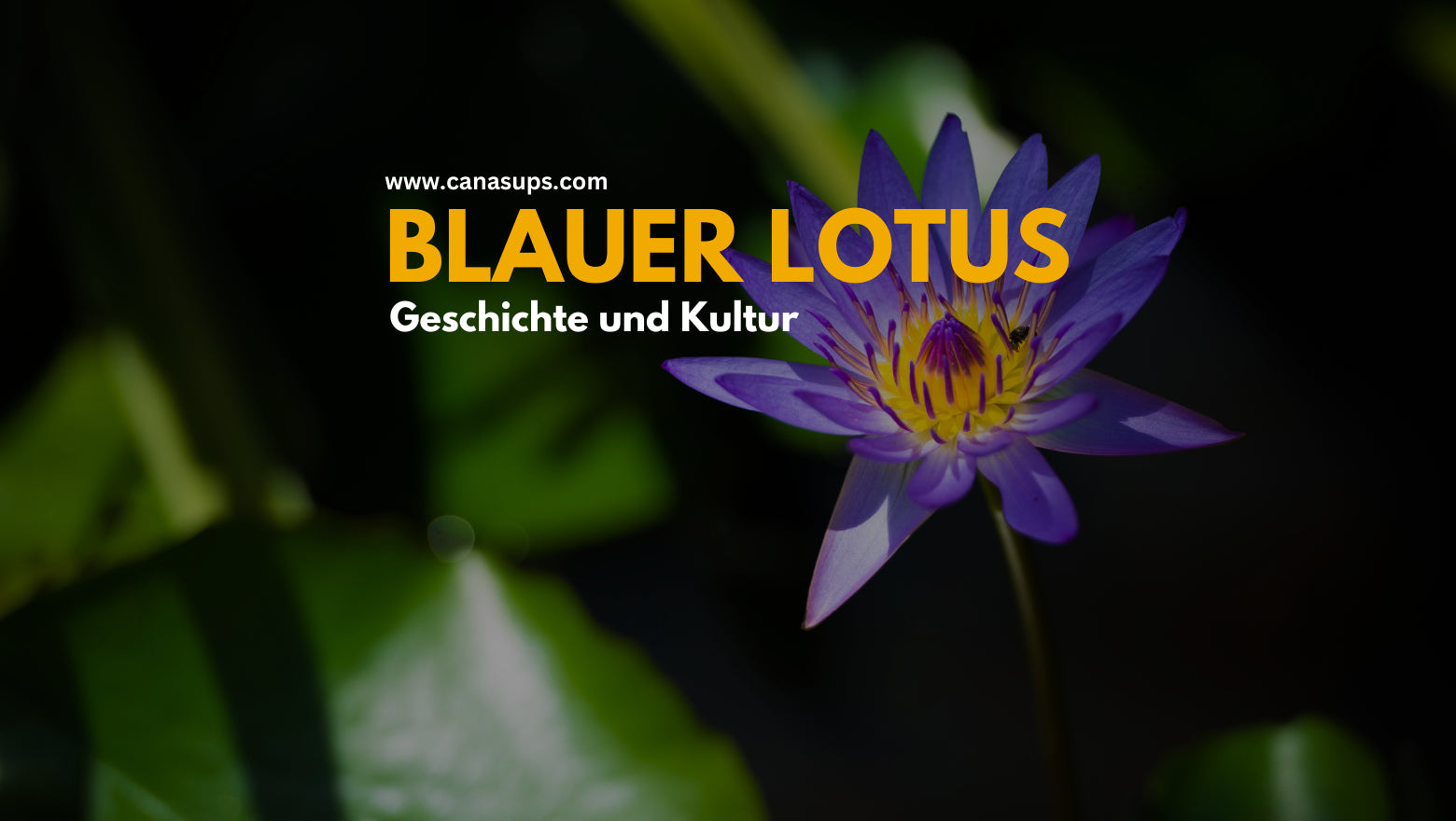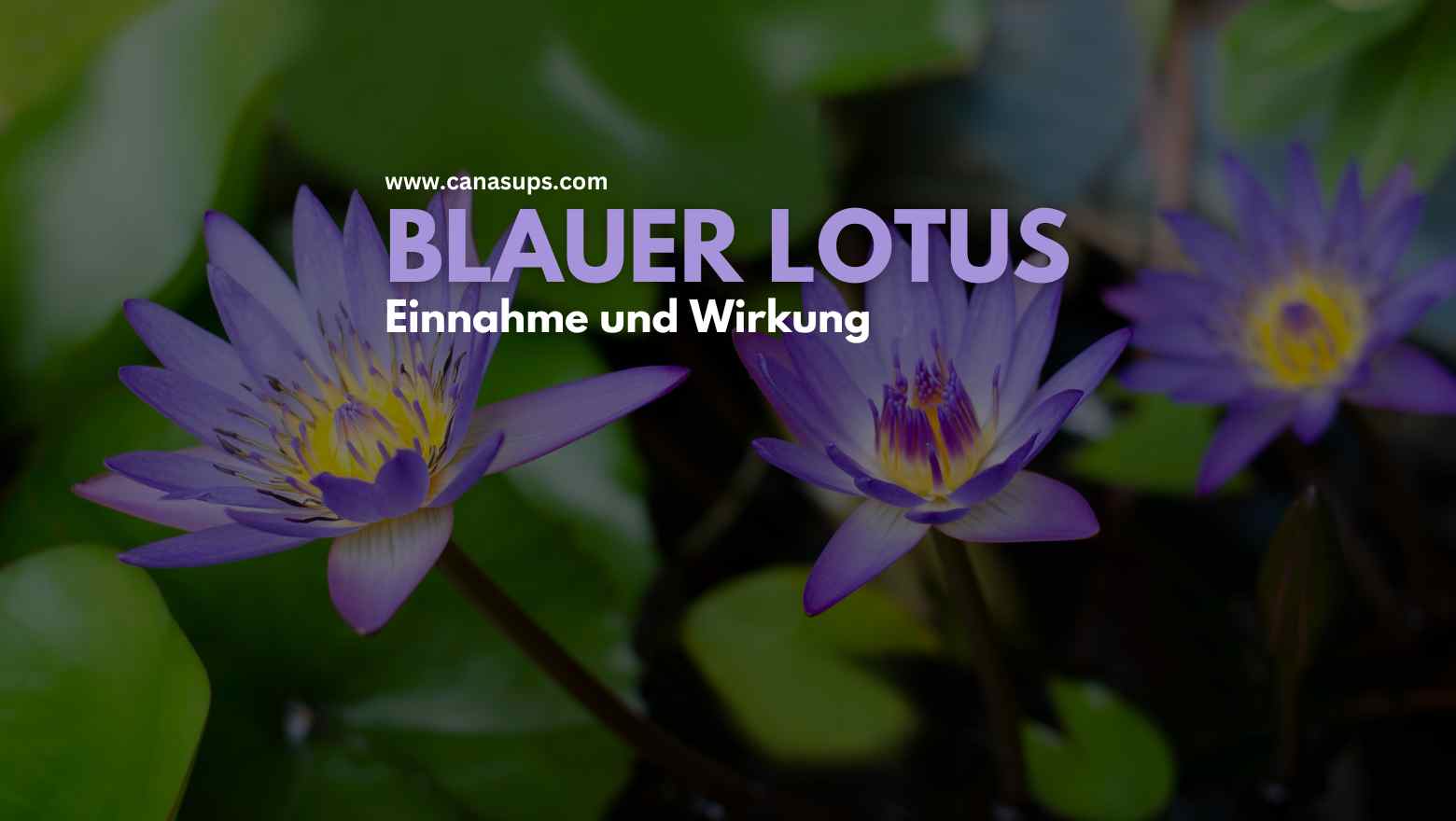The blue lotus, scientifically known as Nymphaea caerulea, is an aquatic plant with deep historical and cultural significance. Native to Egypt and other parts of East Africa, it symbolizes beauty, purity, and enlightenment. In Egyptian mythology, the blue lotus was closely associated with the sun god, symbolically represented in art and architecture.
This is how the Blue Lotus works
In traditional medicine, the blue lotus was valued for its calming and sedative properties. Recent research suggests that the plant may possess antioxidant and anti-inflammatory properties. Discover the secrets of traditional remedies and experience natural harmony.
Aphrodisiac properties:
Many users report increased sexual desire and a heightened desire for intimacy after consuming Blue Lotus. Due to its calming properties, Blue Lotus can help reduce stress and tension, which are often considered obstacles to sexual experiences. Some users describe heightened sensual perception, which can improve sensitivity to touch and the overall experience of sexual intimacy.
Sleep-promoting properties and lucid dreaming:
The blue lotus contains compounds that can have calming and relaxing effects, making it a natural aid for people who have trouble falling asleep or staying asleep. These relaxing properties can help calm the mind and relax the body, easing the transition to sleep. Traditionally, the blue lotus has been used in various cultures to relieve insomnia and as a natural sleep aid.
Lucid dreaming refers to the state in which one is aware that one is dreaming during a dream and can sometimes even gain control over the dream content. Users of Blue Lotus often report more intense dreams and an increased ability to recall their dreams. This may be due in part to the plant's psychoactive components. Some users also report an increased frequency of lucid dreams after consuming Blue Lotus, possibly due to improved dream clarity and memory for dreams.
Stress relief and relaxation:
The blue lotus contains compounds that can have calming and relaxing effects on the body and mind. These properties can help reduce stress and anxiety. The blue lotus can also promote general physical and mental relaxation, which can be helpful for recovering from the stresses and pressures of everyday life. In addition to stress reduction, the blue lotus can also have a mild mood-enhancing effect, contributing to overall relaxation and well-being.
Concentration and sensory acuity:
Some users report that Blue Lotus can have a mild stimulating effect, which has a positive effect on concentration. This may help them feel clearer and more focused.
The Blue Lotus may potentially enhance sensory perception, particularly the visual and auditory senses, which can lead to a more intense and detailed perception of the environment.
Altered sensory perception:
Individuals who consume Blue Lotus sometimes report a more intense or altered perception of visual and auditory stimuli. This might manifest as a heightened perception of colors, with them appearing more vivid or unusual. Similarly, the perception of sounds might be affected, leading to a more intense or altered experience when listening to music or other sounds. Sounds might seem richer or deeper, and the ability to concentrate on specific sounds might also be affected.
In addition to visual and auditory stimuli, other sensory sensations could also be enhanced. This includes increased sensitivity to touch or a more intense perception of textures and temperatures. Such effects could enrich the overall sensory experience and lead to a heightened appreciation of ordinary environments or experiences.
It's important to note that these effects are subjective and variable, and can depend greatly on individual factors, such as dosage and personal response to the plant. Scientific evidence for these specific effects of blue lotus is limited, and much of the information comes from anecdotal reports or traditional uses.











